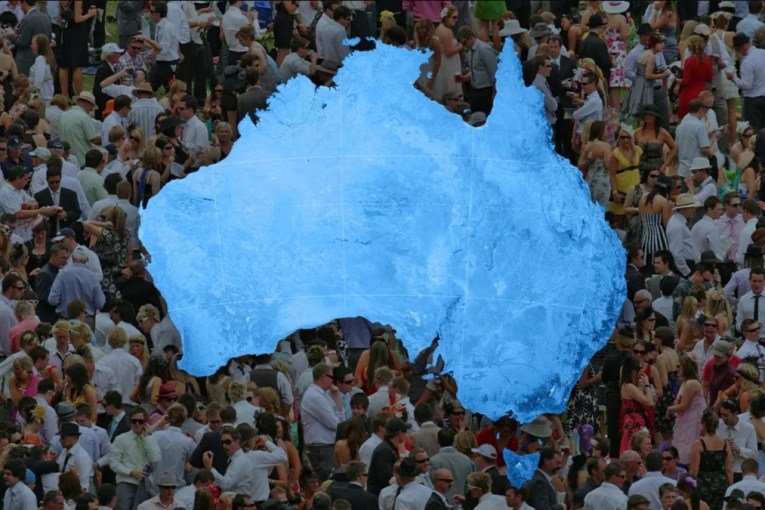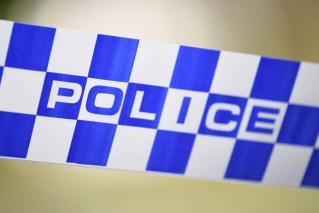Police COVID crackdown in south-west Sydney slammed as racist and heavy-handed

Sydney’s multicultural south-west region will wake on Friday to more police on the streets in a COVID crackdown that has been slammed as heavy-handed and racist.
At least 100 more police will target lockdown rule breakers in the city’s south-west in a “high-visibility” operation to ensure compliance with public health orders.
NSW Police Deputy Commissioner Mal Lanyon on Friday denied the region – one of Sydney’s most diverse – was facing a harsher police response than that witnessed in places such as Bondi or Avalon.
The police response will include additional general duties officers as well as mounted police, the dog squad and PolAir surveillance.
Mr Lanyon said previous outbreaks also prompted mounted police presence.
“The fact we’ve doubled up in southwest Sydney is a reflection of the serious nature of the spread of this virus at the moment … this is the time for the police and the community to come together,” he told the Nine Network.
“We have taken a very balanced, very fair and very measured approach to the way that we’ve enforced these health orders and that will continue through this operation. This is not a time to be heavy-handed.
“This is not about discrimination. This is not about racism. This is about enforcing the health order and we will do that fairly.”
Police will be asking people outside their homes what their reasonable excuse is, and will crack down on activities like unnecessary shopping.
It comes as NSW Premier Gladys Berejiklian foreshadowed the lockdown would continue until greater Sydney’s worsening Delta outbreak was significantly curtailed.
Meanwhile, also on Friday, national cabinet will meet to discuss a range of COVID measures, including compulsory vaccination of disability workers and home quarantine for fully vaccinated travellers.
Ms Berejiklian has hinted the Canterbury-Bankstown, Fairfield and Liverpool local government areas could be subject to stricter COVID-19 restrictions.
Case numbers are surging in the area, with NSW Health finding unlinked cases in Fairfield.
Ms Berejiklian held an online meeting with about 250 community leaders and frontline workers following the announcement of the police operation.
Mr Lanyon said the deployment would involve the dog and mounted united, traffic police, PolAir and the police transport command, as well as general duties officers from the local area.
“Our police will be targeting the people who think the rules don’t apply to them,” Mr Lanyon said.
“Those people are putting everyone’s lives at risk, including their own families, and working to prolong the lockdown.”
However, some have slammed the operation as discriminatory, given the strong presence of multicultural communities in that part of Sydney.
“There is absolutely no logic for the direct targeting of Sydney’s black and brown communities,” NSW Greens MP David Shoebridge tweeted.
“The *only* logic for targeting the most multicultural part of Sydney is the racist over policing of people of colour.”
The *only* logic for targeting the most multicultural part of Sydney is the racist over policing of people of colour.
— David Shoebridge (@DavidShoebridge) July 8, 2021
Racial justice organisation Democracy in Colour decried the decision, describing the operation as “thinly veiled racism”.
“This isn’t a public health response, it’s explicitly targeting people of colour and working class communities in the western suburbs,” national director Neha Madhok said.
“Inner-city suburbs and the northern beaches have had significant cases but they have not been harshly policed like this.”
But Fairfield Deputy Mayor Paul Azzo said the police operation was a small price to pay if it slowed the spread of the virus.
“The fact that the proposed response was not adopted for earlier outbreaks in eastern Sydney and the northern beaches does not faze me,” Mr Azzo said.
“I see the proposed police response as a positive for south-western Sydney and I congratulate the Premier for taking a special interest in the residents of Fairfield.”
Mr Lanyon denied the operation was discriminatory.
“The virus has shown very clearly that it doesn’t discriminate and nor does the NSW Police,” he said.
“That is why we are targeting the south-west metropolitan area as of tomorrow, as we have done where other areas of concern have been identified.”
Police will ask people who are outside their homes what their reasonable excuse is, and will crack down on activities such as unnecessary shopping.

Police Minister David Elliott said police would be helping people comply.
NSW Police Minister David Elliott said the virulent Delta strain of the virus was a “game-changer”.
“Police will be out in the community helping people to comply, but where they don’t get compliance they will be out enforcing the public health orders,” he said.
NSW recorded its highest number of daily infections this year on Thursday, notching up 38 new local cases.
At least 20 were in the community for part or all of their infectious period.
Eleven people are in intensive care in NSW, with three ventilated.

Photo: Getty
Home loan help
Small businesses and Australians with home loans who are struggling through COVID-19 lockdowns can count on their banks to help them, the Australian Banking Association says.
A new national support package will be available to small businesses and home loan customers significantly affected by lockdowns or recovery from them, the peak body announced on Thursday night.
Customers will be able to defer mortgage repayments on a month by month basis.
Small businesses with loans in good standing will be able to delay loan repayments by up to three months.
Banks have also promised to refund merchant terminal fees for up to three months.
The package must be given the green light by the Australian Competition and Consumer Commission.
Spectators banned as Tokyo declares emergency
Spectators will be barred from Olympic venues in Tokyo, with organisers insisting it was the “only choice” after a new state of emergency was declared in the Japanese capital.
It is the latest setback for the Games, which was initially postponed for 12 months due to the coronavirus pandemic.
The global health crisis continues to have a major impact on preparations for the event, with rising infection rates in the Tokyo region prompting the Japanese government to reimpose emergency measures for a fourth time.
Olympic events held in regions of Japan where emergency measures have not been imposed might still have spectators if the relevant local authorities opted to do so, a statement from the organisers said.
“This is a sorry message that we have to announce, but this was the only choice available to take,” Tokyo 2020 Organising Committee president Seiko Hashimoto said on Thursday.
In June, organisers announced plans to allow 50 per cent capacity at Games venues, up to a maximum of 10,000 people. The declaration of the state of emergency from Monday forced them into a re-think.

Delayed by the pandemic and now without spectators, the Olympics will finally get underway later in July. Photo: Getty
Asked how athletes would feel, Mr Hashimoto said: “They wanted a lot of people to watch their performances, but many of the Japanese public were worried about the COVID-19 situation, even with the solid countermeasures, because of the flow of people and because of various concerns.
“The anxiety is being expressed and a lot of people are opposed. Every person is entitled to have every different thought but overriding these differences, athletes will do their best.”
Organisers barred overseas spectators from the Games back in April.
The Olympic Games officially begin on July 23, with the closing ceremony on August 8.
A decision on spectators for the Paralympic Games – which run from August 24 to September 5 – will be made on July 16.
-with AAP








